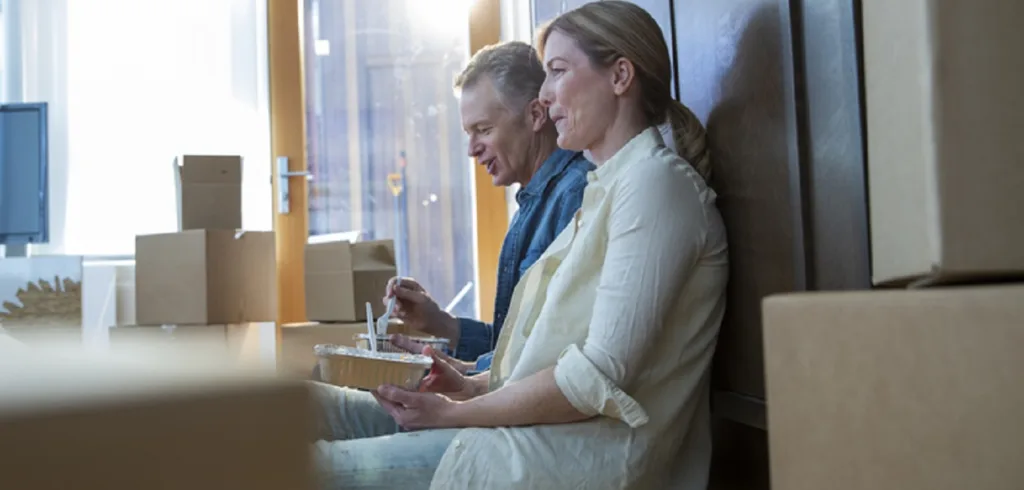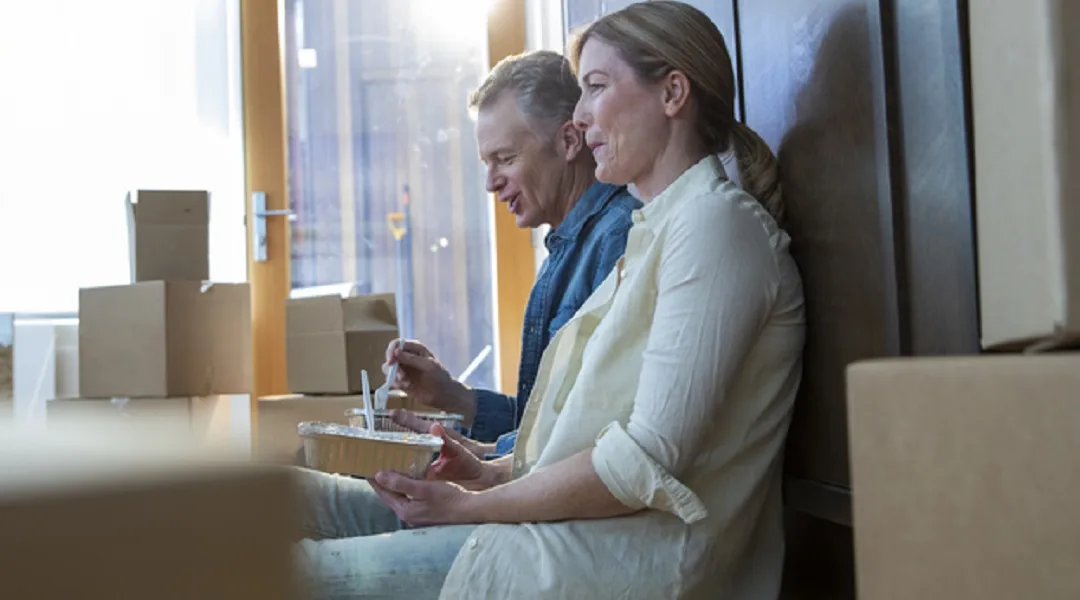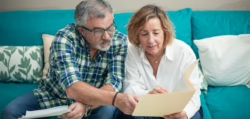
How can you make the most of your home in retirement? Last week we looked at the ways homeowners can maximise their retirement income by using this very valuable asset. Our focus was on those who plan to stay put in their ‘forever’ homes. This week we explain the options available to those who are choosing to sell up and relocate. Or to use the most common parlance, to downsize!
What is downsizing?
This may seem obvious, but ‘downsizing’ is a term now used so frequently that it can be a misnomer. It’s come to cover the notion of older Australians selling and relocating. But not everyone who sells is ‘downsizing’. Perhaps a better term is ‘rightsizing’. This can still cover those who find a large, expensive to maintain family home no longer as appealing as it once was. But some vendors buy larger, with very differently configured spaces, others go smaller, some go from the city to the country, others the reverse. Size is not really the major consideration. What is important from the outset is to understand that, whilst you are making a decision about property and homeownership, the financial implications can be huge. Knowing the main retirement income rules associated with downsizing is imperative. Let’s start with Age Pension entitlements.
How Centrelink treats home sales
While your wealth is in the asset of the family home, this asset is exempt from both an assets and income test assessment. This is a huge bonus for a retiree who can have secure accommodation without being penalised financially. If you sell your property, there is a ‘grace’ period on the proceeds before Centrelink will reassess your eligibility and your payments as reported in January this year,
As of 1 January, the exemption for downsizing funds is now two years. So you can ‘park’ this money in an appropriate account and it will not be included in any assets assessment for your Age Pension eligibility.
Income test assessment on the proceeds of downsizing has also changed. As of 1 January this year, the deeming rate applied to this portion of your savings is the lower rate, 0.25%.
What do you need to do?
Before you sell, if you are unclear about how much of the proceeds from such a sale will remain liquid (i.e. not used to repurchase), you need to fully understand asset limits which consider your current assets and any potential increases. This is to ensure that you do not inadvertently threaten your Age Pension entitlements. Losing this entitlement is a very real possibility. So do your homework first before you proceed. You will also need to inform Centrelink of any change in your assets within 14 days of settlement.
Super and the sale of your home
There are a few attractive super strategies that can encourage homeowner retirees to sell. One of the ‘big ones’ is the Downsizer Contribution strategy that allows couples to put up to a combined $600,000 into super after the sale of their primary residence. The notion of getting such a large lump sum into super without penalty is very appealing. BUT whilst this is also usually tax effective, you will still be converting proceeds from a Centrelink-exempt asset into a financial asset. You therefore need to be very careful not to be surprised by any sudden loss of entitlements.
Two other strategies that can work in tandem with the sale of a family home are the Bring Forward Rules and the Younger Partner rule. The latter can involve transferring profits from your home sale into a younger partner’s super (accumulation) account, increasing the likelihood of Age Pension eligibility for the older partner.
Again, knowing all the rules of super and how they apply to your age and lifestage, as well as potential property transactions, is of critical importance.
Buying another property
The true cost of selling and buying a primary residence can be quite high. Typical charges when selling include:
- Real estate agent fees and charges
- Refresh/presentation costs
- Marketing
- Legal fees
- Mortgage discharge fees
- Transfer fees
- Relocation costs
Costs for those purchasing can include:
- Stamp duty
- Legal fees
- Building inspections/reports
- Mortgage fees
If you are selling in order to reduce a worrying mortgage, it may be useful to speak first to an adviser to see if there are other ways of managing this debt , before pressing the ‘go’ button on a full-scale relocation – especially if your heart isn’t really in it!
Using home equity
As we noted last week, we will be explaining the three forms of accessing home equity in a future article. But it’s useful to remember that while it was mentioned for those who are staying in their current property, home equity access remains a valid option for all retiree homeowners, including those who are in a newer property.
Deciding to rent
It may be that home ownership seems all too hard and you wish to sell up in order to free some funds and to become a renter. Only you can judge if this is the right decision, but it’s worth noting that rentals across Australia have risen by about 10% over the past 12 months. We are going through a period of housing shortages, so it is possible you will find it more challenging to get accommodation that suits in the right location, at an affordable price. The best way to judge this strategy is to do your research by checking out rental properties where you wish to live and testing how easy it will be to secure one. Additionally, checking the ramifications of such a sale against potential Age Pension entitlements is very important. As you are not planning on using the proceeds from your home sale to fund another property, you will need to ensure there are no unexpected repercussions when the Centrelink grace period of two years has ended.
Think slowly
Moving home can be a major cause of stress, so best to do this only if you feel both excited and committed to the prospect. Some reasons NOT to sell include:
- Feeling bullied into it by over eager partners or adult children
- Being worried you will run out of money before you have analysed your long term Retirement Income Forecast.
- Believing that a radically new home in a different neighbourhood will make all your dreams come true.
There’s a lot to be said for thinking – and deciding – slowly. And that’s only after fully considering all the pros and cons of staying, going, managing a mortgage, super and entitlements has been thoroughly investigated.
What about you?
Are you thinking of downsizing? Or rightsizing?
Or have you already done so?
How did the big move work for you?






how much money are you allowed to hv after the sale of a house to downsize
Hi Annette, thanks for your comment! I’m not 100% sure what you mean as there is no limit on how much you can have left over after downsizing? I’m guessing you are wanting to know what the asset thresholds are regarding the Age Pension? If so you can view the thresholds on our website HERE.
I’m retired 69. husband working full time 63. I get a small part pension. we want to sell and move to nz to be near family but are worried about losing our pension benefits if we do.
Hi Judy, thank you for raising your concern! There will potentially be a reduction to your Age Pension if you move overseas but it is not likely to be cancelled. We actually covered off everything you need to know about moving overseas in THIS previous article.
We have just sold our home and considering downs sizing to a Lifestyle Village where you purchase the building but pay a rental on the land, They say you can get rental subsidy from Centrelink on the land. Will Centrelink recognise the house side as an asset which is not assessable. I am on the pension but my wife is not being younger
Hi Paul, thanks for seeking clarity! Generally speaking most people who buy into a retirement/lifestyle village will be assessed as homeowners (meaning the house is exempt) however you are able to claim rental assistance to help cover the site fees. You can read more about how Centrelink assess this situation HERE.
Very helpful article
G’day RE
We have fairly large Granny flat, 72m², on our block. We are looking at moving in there snd renting out the main house.
your thoughts please
Lynford
Hi Lynford, thanks for your question. The potential impact of this change will depend on a number of factors including other levels of asset and income in your situation, so this can be a tricky one to broadly answer. It could increase your household income overall, but in figuring out whether it’s worthwhile you need to clearly understand the impact, if any, on age pension entitlements and even your longer term tax situation. I would suggest you book a one-on-one appointment to work through each of the implications together by booking a General Consultation, you can book this by clicking here. Best of luck, Nicole.
What happens if your home becomes a boat?
Does centrelink recognise this and are marina berth fees countable as rent?
Hi Annette, thank you for raising a niche situation! If you live on a boat then Centrelink will assess you as a homeowner, as you own your primary residence. This means that the boat will be exempt from your assets test and you can claim rental assistance to help cover site fees.
You state that profit from downsizing is exempt from the assets test for 2 years. Does this profit need to be declared to Centrelink immediately or at the expiration of the 2 years? Can you park your profit into your super fund in instalments up to $300,000, or does it need to be 1 lump sum? And can it be parked in your super fund at your leisure or does it need to be contributed immediately?
Hi Michael, thank you for your query! Based on the wording you have used I think you may have misunderstood how the exemption works. The exemption is only applied to the balance of sale proceeds to be used for the new house being bought/built. So if you sell for $1.5m and intend to buy/build for only $800K, this would be declared to Centrelink from the outset meaning the $800K would be exempt whilst the “profit” of $700K would be assessed as an asset from the outset. The 2 years is how long you have to then complete buy/build for $800K before the exemption will expire.
Hi, I am loosing my pension as my younger partner is returning to work, I have very little super and a small mortgage left. I am thinking of pulling my super out and put it onto my mortgage. This will decrease the interest I am paying. I am looking at downsizing in the next year or two
Hi Jenny, thanks for your comment. It sounds as though there are a lot of changes in your situation over the coming years, and some big decisions to make. Whether or not to use super to pay down/off a mortgage is sometimes a little more complicated than just considering your interest rate. If you want to better understand the implications of each of the decisions both on potential age pension entitlements and on your situation over the long term I think you would benefit from a one-on-one strategy consultation with us. We can discuss the pros and cons of each of these decisions so you can feel more confident moving forward that you’re in the best position for your retirement. You can book a Strategy Consultation by clicking here. Best of luck, Nicole.
Hi, my husband and I are 63 and 60, and still working! We own our house
worth up to $1,500,000, have a unit valued around $650,000, with a mortgage of $230,000, and I have super of $160,000, my husband doesn’t have super, he is self employed! My question is, should we sell our house, and move into our unit, be self funded retirees and not get a pension, downsize and sell our unit, and see what we have left, or stay in our family home, sell the unit and put the $400,000 into super and still get a part pension? Not sure what is the best thing to do!
Hi Rikki, thanks for your question. The good news is that you have lots of choices! It’s hard to know at first glance which one will work out best long term without a little more detail and a bit of longer term forecasting for each option. We can discuss this one-on-one in a Strategy Consultation, this service lets us go through each option, and consider not only potential age pension entitlements but how long your money could last through retirement comparing scenarios. You can book a consultation here, or alternatively I will reach out to you directly with a bit more information. Best wishes, Nicole.
We are retired , downsizing our home and started building. Our loan been approved for 890k. ( land + build) We also have spend 50k on site and development costs getting the land ready for build. Our current super balance is $1 m.
We planned to sell our current home for $1 m and hopefully put 600 k into super . We are not sure whether to pay off the mortgage or help our children out with their deposit for their houses.
What are the issues to consider in paying mortgage using income from super and transfer 400 k to the kids.
Hi and thank you for your comment. Whether to repay debt leading into retirement is a common question amongst our advice community and a decision which needs analysing. Will your super be able to fund your cost of living if the mortgage is retained? What is the interest rate on your mortgage compared to average super returns? Would repaying the mortgage make you eligible for a Part Age Pension? How are loans or gifts counted for Age Pension purposes and would this impact your eligibility for Age Pension benefits now, or in the future? These are all questions which we can talk through in our Strategy Consultations, we can also run the 2 different scenarios through our Forecasting Tool, to provide you with estimated outcomes for each from a wealth longevity, income needs and Age Pension eligibility perspective throughout retirement.
What are the Centrelink rules if you sell and upsize when relocating? When I move to the coast I want a better house and larger to accommodate my family when they visit. I may need to invest around $200 – $300K plus fees in the transactions.
Hi Diane, thanks for seeking our help! There are no penalties from Centrelink if you choose to buy a new house for more then what you sold your old one for. Go get that lovely home on the coast!
We are thinking of doing a similar upsize as Dianne. I am 62 yrs old and have ‘retired’ (not working), my husband is retired (pension age) on a part pension. Could I take $200 – $300K out of my Accumulation account in Super to pay for the upsize? Also how would this sit with Centrelink re my husbands pension.? I understand I have access to my super as I am not working.
Hi Jenni. You can get your super (and/or take a lump sum out of it) when you retire and reach your ‘preservation age’ — between 55 and 60, depending on when you were born. Under Centrelinks eligibility rules superannuation in accumulation phase of a person under age 67 is not counted for the assets or incomes tests. The primary residence also does not count for Centrelink eligibility rules. You stated that your husband in on a part age pension, it may be worth booking a consultation with one of our financial planners who can run through your situation and scenario as you may have opportunities where a different approach could increase your husbands age pension amount as well as upsizing your home. This website page provides an overview and a booking link.
I wish to downsize ,my children will pay for my unit ,and when I sell my home will pay them back what I would like to know is ,what are the incentives for a age pensioner to downsize.i am Aged 77 and a widow ,on age pension.it’s all a bit con fusing
Hi Gerta, it’s Sharon here, thanks for your question. Downsizing is most commonly considered for a couple of reasons; firstly to move to a more manageable property for retirement, and secondly to tap into equity in the property, for some surplus funds to invest after buying something with a lower price. It can be a bit confusing, and our Strategy Consultations are designed to work through what is most important to you in your retirement. These are a 55mins video meeting where we can discuss options for you to consider, for improving your retirement outcomes. I would be happy to help you if you are interested, and these can be booked here
I have sold my house and will be buying another. If I down size I will have $500.000.00. If I buy and upsize another I will have $300,000.00. Can I still get my pension for upsizing. I am 80 years of age and on my own. I never had super. Thank you for help..
Hi Gaila, thanks for seeking further clarity! Yes you can upsize if you wish and then apply for the Age Pension. Centrelink will not penalise you for buying a more expensive house and the new house will still be exempt form the assets test
Hi. My new partner & I are planning on getting married & are 65 & 70. I own my own home $400k which I will sell or rent, my partner’s home in which we will live is around $1m We have $300k (accumulation) & $580k (pension) super plus $100k & $140k other assets. Is it possible for my soon to be husband to get even $1 age pension when we get married. I’m open to using the downsizing options & not draw a pension from my super until I turn 67 which I velieve I will have to do at that time.
Hi Lorrie, it’s Sharon here, thanks for asking. Yes it makes a difference generally speaking when one partner is under Age Pension age, as superannuation which is left in accumulation phase is an exempt asset, as long as an income stream is not commenced. One partner is able to qualify for Age Pension without waiting for the other to reach Age Pension age, provided combined assets and income are beneath the current thresholds. The home you own and live in is an exempt asset, but another property you own but don’t live in, is counted as an investment property. There are a small number of expenses which Centrelink will allow to be offset to reduce your assessable rental income, such as investment loan interest charges. It isn’t clear whose name the different super balances are in and I would be happy to walk you through strategy options to maximise your entitlements in one of our Strategy Consultations.
Hi, my parents are almost 80 and entitle the age pension now. They are now hard to handle their house and don’t have much cash on hand.
We are thinking to borrow $ to them for some necessary repairing before selling the house.
They will repay the loan to us, rent an unit in 2 years transition period , buy a smaller house/ unit within the 2 years. Then keep remaining cash within the asset test.
Does this plan work? Especially, the loan for house repairing before selling and then loan repayment to reduce cash balance for asset test
Do we need declare anything to centrelink? by when ?
Hi Terence, Thank you for reaching out. We are definitely able to provide you with assistance to clear all of this up for you and help you understand the rules and process etc. I would suggest scheduling a General Advice consultation with on of our advisers at a time convenient for you.
Hello, I have recently downsized to a villa. Sold my house for $947k and purchase for villa $650k body corporate $600 per quarter.. After purchasing furniture and upgrading appliances I am now left with cash $170k which is in a bank account earning interest $200 monthly. It is having TFN charged on this account monthly. I no longer have TFN.Can you advise what I can do with this money so as not to affect my pension.PS also have an allocated pension drawing $1000 pm. Balance currently $120k. Thanks Trish
Hi Trish, thanks for seeking further guidance! We’d be happy to explore your options with you and help you to understand the pros/cons of each so you can make the best decision for yourself moving forward. The best way to do this is via one of our consultations which you can book HERE.
I want to upsize and build new property borrow my equity to fund new build will I lose my Centrelink carer benefits
Hello
A relative of mine would like to downsize. They are a single person currently receiving full aged pension.
My question is if they buy an independent aged care living unit which has an approved price of $665,000 with a 30% retention but opt in to pay $857,000 with a 10% retention will the extra $192,000 they pay for the unit be considered as equity for the purpose of receiving the aged pension.
Thanks
Hi Tania, this is a very niche area and it is hard to say how Centrelink will assess the situation as it would depend on the specific contract your relative has.
Hi. is it good strategy to use some of my super to buy land and then replace it after selling my current home and building a new one? Currently I don’t have sufficient funds to purchase land before I sell.
Hi Penny, it may be but what is best for you could be very different to someone else so it is hard to be certain without understanding your situation in greater detail. This is what our consultations are designed for, you can speak with a specialist, explain your situation and then they can educate you on the pros/cons of each of your options so you can make your decision with confidence. CLICK HERE to book.
Hi, I am 64 years and have sold my home, I would like to downsize in Super $300000 and put a further $335,000 into accumulation super acct using the bring forward elegibility rule. As is is a 2nd marriage my husband and I keep our finances separate. He is 61 with very little super. He does have a unit valued at$ 500000 which he rents..Together we have own a rental, valued at $400000. What will happen with pensions when we both turn 67. Will we both be entitled to a pension.
Hi Robyn, thanks for reaching out and you definitely have a few different factors to consider! I’d recommend booking a session with our specialists to see what your options are to Maximise Your Entitlements.